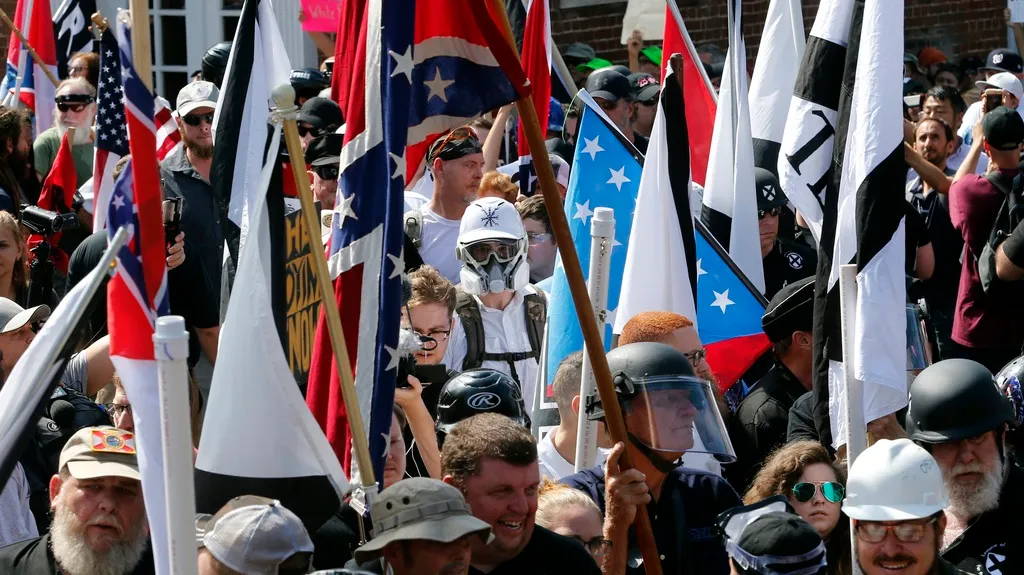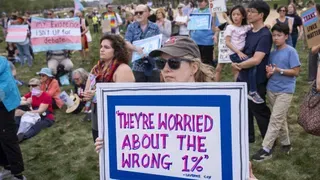July 25, 2013
Gay Binational Couple Fights Feds
Kilian Melloy READ TIME: 5 MIN.
A Mexican-born San Francisco man is being held in Pennsylvania for a visa violation while his husband, a U.S. citizen, tries to get him out.
The dilemma facing Pedro "Antonio" Ayon Garcia, 45, and Brad Frazier, 44, who've been together for 10 years, comes just as same-sex couples are finally allowed to marry in California and the federal government starts recognizing the rights of binational couples. It also seems to point to ineptitude within the U.S. Department of Homeland Security, Frazier said.
"We've spent our whole relationship doing what we can to legitimize ourselves, but those options just weren't there," said Frazier. But finally, in late June, the U.S. Supreme Court struck down California's Proposition 8 same-sex marriage ban as well as a key section of the Defense of Marriage Act, which prohibits federal recognition of same-sex unions.
"Now that those options are there, and it's what we've wanted the whole time, there's a federal agency standing in the way, and it is so bureaucracy-laden they can't even take a look at the story and the humans involved and say, 'Oh, this is easily solvable,'" he said.
The couple isn't legally married but they registered as domestic partners in 2011 and refer to each other as husbands.
Their trouble started June 2 as Garcia was returning from a visit to his mother in Mexicali, Mexico. He was stopped as he crossed from Mexicali to Calexico, California, Frazier said in a summary.
According to DHS records, Garcia presented a DSP-150 visitor's visa to a U.S. Customs and Border Protection officer and admitted that he'd been living and working in the United States without the proper visa.
Eventually, he also "admitted living with his boyfriend in San Francisco" for the past decade, the documents say. His visa was canceled and he returned to Mexico, according to the file, which Frazier shared with the Bay Area Reporter.
Frazier said in a fact sheet that when Garcia tried to return to California, U.S. Immigration and Customs Enforcement agents "nabbed" him, and he was taken to a Southern California facility "where he was coerced to blindly sign" what "turned out to be a voluntary deportation document."
Garcia tried to claim asylum based on his sexual orientation, but after he was held for more than a day, he was sent back to Mexico.
His next attempt was June 28 - the same day the 9th U.S. Circuit Court of Appeals lifted a stay that allowed same-sex marriages to immediately resume in California. That order came two days after the Supreme Court announced its Prop 8 decision.
This time, Garcia tried to enter the U.S. through Arizona. ICE agents took him into custody again. The "authorities acknowledged his request for asylum," stated Frazier, and extended his incarceration. Frazier said Garcia doesn't have a criminal record and that he'd gone back to Mexico multiple times on his visa, which he'd had for at least 20 years. He was recently moved from Arizona to Pennsylvania.
The couple didn't marry in 2008, during the brief period when such marriages were first legal in California, because "we knew at that point that that was not going to stick, and we wanted to leave our options open," said Frazier. They had even considered Garcia marrying a woman, a union that typically would be recognized by the government.
Bureaucratic mess
Frazier suspects his husband's detention is a mix of prejudice and ICE being a bureaucratic mess.
"Because ICE is so large, they simply see these people as numbers," he said. "If they would simply stop and look at the file and read what's going on, it could be solved so quickly, because there is a solution - marriage."
The couple's hardship also comes despite outgoing DHS Secretary Janet Napolitano's announcement last year that she planned to direct ICE to issue guidance to field offices codifying that LGBT family ties would be recognized in immigration cases.
In a September 2012 letter to House Minority Leader Nancy Pelosi (D-San Francisco), Napolitano, who was recently chosen to lead the University of California system, said, "In an effort to make clear the definition of the phrase 'family relationships,' I have directed ICE to disseminate written guidance to the field that the interpretation of the phrase 'family relationships' includes long-term, same-sex partners."
More recently, Napolitano said last month that her department would implement the Supreme Court's DOMA decision. And already some married binational couples have received green cards for their foreign-born spouses.
A DHS spokesman didn't respond to an interview request for this article.
Extraditing Garcia to California seems to be the best option, and it's not clear why the government isn't choosing it, Frazier said. Frazier said if his husband were sent to a California facility, they could marry and Garcia would be released on bond.
Frazier said he hasn't spoken with anyone at ICE but his attorney, Steve Shaiken, has been communicating with the agency.
ICE hasn't given a specific reason for why the agency can't extradite Garcia to California, said Shaiken, at least not any logical reason.
"Everything they said makes no sense," he said.
Among other factors the government cited is expense. But Shaiken noted that Garcia could have been driven from Arizona to a Southern California facility in less than a day. Instead, the government flew him thousands of miles to Pennsylvania.
It's not clear why Garcia was moved to Pennsylvania in the first place.
"I spoke to his deportation officer in Arizona last Monday, and she was not aware that they had just transferred him" to the Pennsylvania facility, Shaiken said this week. Both Pennsylvania and Arizona ban same-sex marriage.
On his most recent detention in June, Garcia asserted his fear of returning to Mexico because of his sexual orientation. "Once he made that request, they had to give him the credible fear interview," said Shaiken, referring to questioning meant to determine the likelihood of Garcia being persecuted for his sexual orientation if he returns to Mexico to live. The interview hasn't happened.
However, Shaiken said in a Tuesday, July 23 interview that the asylum office in Newark, New Jersey plans to interview Garcia by the end of next week. If that happens, "We're fairly confident he'll get a positive finding of credible fear," he said. Once that determination is made, a bond would be set within days, and Garcia should be released within "a couple weeks, at most," said Shaiken.
Asked why Garcia had repeatedly returned to Mexico if he were so afraid of going back, Shaiken said his client had wanted to see his family, and "a brief visit doesn't mean you're not afraid."
He also said if Garcia hadn't requested asylum, he would have been deported immediately.
Frazier has reached out to elected officials. He said the office he's got the most response from is Pelosi's.
Pelosi spokesman Drew Hammill said, "I can confirm we have been discussing the situation with the couple, but I really can't comment further" because of privacy guidelines. He said he also couldn't comment on the response from ICE or when the matter might be resolved.
Kilian Melloy serves as EDGE Media Network's Associate Arts Editor and Staff Contributor. His professional memberships include the National Lesbian & Gay Journalists Association, the Boston Online Film Critics Association, The Gay and Lesbian Entertainment Critics Association, and the Boston Theater Critics Association's Elliot Norton Awards Committee.





